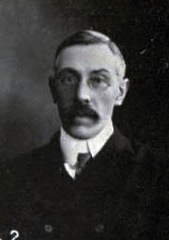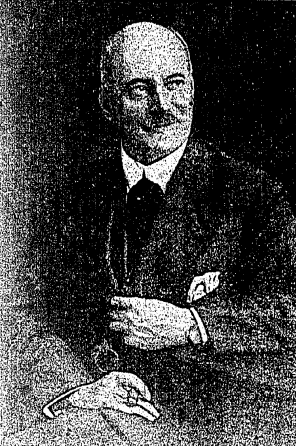Related Research Articles

The Legislative Council of the Hong Kong Special Administrative Region (LegCo) is the unicameral legislature of Hong Kong. It sits under China's "one country, two systems" constitutional arrangement, and is the power centre of Hong Kong's hybrid representative democracy, though popular representation in the legislature has diminished significantly in recent years, along with its political diversity.

Lydia Selina Dunn, Baroness Dunn, is a Hong Kong-born retired British businesswoman and politician. She became the second person of Hong Kong origin and the first female ethnic Chinese Hongkonger to be elevated to the peerage as a life peeress with the title and style of Baroness in 1990.

Maria Tam Wai-chu is a senior Hong Kong politician and lawyer. She is a member of the Committee for the Basic Law of the National People's Congress Standing Committee (NPCSC) since 1997 and the chairman of the Operations Review Committee of the Independent Commission Against Corruption (ICAC) since 2015.

The Hong Kong Civic Association is one of the longest-existing political organisations in Hong Kong. Established in 1954 by a group of teachers, professionals and businessmen, the Civic Association was one of the two semi-political parties to participate in the Urban Council elections since the 1950s, alongside Reform Club of Hong Kong. They were the only two organisations closest to the opposition parties dominated in the post-war colonial period before the expansion of the franchise in the 1980s.

Hilton Cheong-Leen, CBE, JP was a Hong Kong politician and businessman. He is the longest uninterrupted serving elected officeholder in Hong Kong history as an elected member of the Urban Council of Hong Kong for 34 years from 1957 to 1991. He was also the first Chinese chairman of the council from 1981 to 1986. He had been a long-time chairman of the Hong Kong Civic Association, one of the two quasi-opposition political groups in the post-war Urban Council. From 1973 to 1979, he was appointed unofficial member of the Legislative Council of Hong Kong. From 1985 to 1988, he was again among the first elected members of the Legislative Council through Urban Council constituency in the first Legislative Council election in 1985.

Sir Henry Edward Pollock, QC, JP was an English barrister who became a prominent politician in Hong Kong. He acted as Attorney General in Hong Kong on several occasions, and was once appointed to the same post in Fiji. He also served as Senior Unofficial Member of both the Legislative Council and Executive Council for many years in pre-Pacific War Hong Kong. Along with Sir Paul Chater, then Governor Sir Frederick Lugard and others, Sir Henry was one of the founders of the University of Hong Kong.

The 1996 Hong Kong Provisional Legislative Council election was held on 21 December 1996 for the members of the Provisional Legislative Council (PLC). The 60 members of the PLC was elected by the Selection Committee, a 400-member body elected by the Preparatory Committee for the Hong Kong Special Administrative Region, a Beijing-appointed body which was responsible for implementation work related to the establishment of the HKSAR.

The Hong Kong Chinese Reform Association is a pro-Beijing political organisation established in 1949 in Hong Kong. It was one of the three pillars of the pro-Communist leftist camp throughout most of the time in Hong Kong under colonial rule.
John Joseph Francis KC was a senior counsel in British Colony of Hong Kong and the first elected member of the Sanitary Board.

A plebiscite on whether the Sanitary Board should have an official or unofficial majority was held in Hong Kong in June 1896. It was the only plebiscite conducted by the Hong Kong Government on record. The other de facto referendum launched by the pro-democracy camp through the by-election in 2010 was not officially recognised.

Percy Hobson Holyoak was a British businessman in Hong Kong and member of the Legislative Council and Executive Council of Hong Kong.

Sir Man-kam Lo, CBE was a Eurasian lawyer in Hong Kong and unofficial member of the Executive Council and the Legislative Council of Hong Kong.

David Fortune "Taffy" Landale, JP, was a British-Hong Kong entrepreneur and politician who was chairman and managing director of Jardine Matheson & Co. from 1945 to 1951, during which he was appointed by the Hong Kong government as an unofficial member of the Executive Council from 1946 to 1951, as well as the senior unofficial member of the Legislative Council from 1946 to 1950. Later in his life he settled in the United Kingdom, where he was chairman of the Royal Bank of Scotland between 1955 and 1965.
Edward Victor David Parr, JP was a British businessman and unofficial member of the Executive Council and Legislative Council of Hong Kong.
Percy Chen was a Chinese Trinidadian lawyer of Hakka Han descent, as well as a journalist, businessman and political activist.

The Young Plan was a constitutional reform proposal carried out in 1946 attempting to introduce representative democracy in Colonial Hong Kong. Named after the then Governor, Mark Young, it was the first major reform proposal to give Hong Kong inhabitants a greater share of managing their own affairs by widening the base of Hong Kong's political system through the creation of a new Municipal Council. The proposed Council was to consist of an elected majority based on a fairly wide franchise, with powers and autonomy over all urban services, education, social welfare, town planning and other functions. It even allowed for indirect election of two Unofficial Members of the Legislative Council (LegCo) by the new Council.
Maurice Murray Watson was a British solicitor in Hong Kong and unofficial member of the Legislative Council of Hong Kong.

Cedric Blaker was a British entrepreneur in China and Hong Kong. He was the chairman of the Hongkong and Shanghai Banking Corporation, the South China Morning Post and the Hong Kong Chamber of Commerce and also an unofficial member of the Executive Council and the Legislative Council of Hong Kong.
Liberalism has a long tradition as an economic philosophy since the founding of Hong Kong as an entrepôt which cherishes private property, the free market, and free trade. In recent decades, Hong Kong has earned its international reputation as one of the "freest economies in the world". As a political trend, liberalism has become the driving force of the democratic movement since the 1980s which is mainly represented by the pro-democracy camp which strives for the universal suffrage, human rights and rule of law in Hong Kong.
References
- ↑ Endacott, G.B. (1964). Government and people in Hong Kong, 1841-1962. Hong Kong University Press. p. 142.
- ↑ Sayer, G.R.; Evans, D.M.E. (1985). Hong Kong 1862-1919: Years of Discretion. Hong Kong University Press. p. 122.
- ↑ Tsang, Steve Yui-Sang (1995). A Documentary History of Hong Kong: Government and Politics. Hong Kong University Press. pp. 79–81.
- ↑ Madden, Frederick; Darwin, John (1994). The Dependent Empire, 1900-1948: Colonies, Protectorates, and Mandates : Select Documents on the Constitutional History of the British Empire and Commonwealth. Greenwood Press. p. 365.
- ↑ Carroll, John Mark (2007). A Concise History of Hong Kong. Rowman & Littlefield. p. 67.
- ↑ Madden, A. F.; Fieldhouse, David Kenneth; Darwin, John (1994). Select documents on the constitutional history of the British Empire and Commonwealth: the foundations of a colonial system of government. Greenwood Press. p. 368.
- ↑ Miners, Norman (1987). Hong Kong under Imperial Rule, 1912-1941. Oxford University Press. p. 138.
- 1 2 "Old Hong Kong". South China Morning Post. 1934-07-02. p. 16. ProQuest 1759394297.